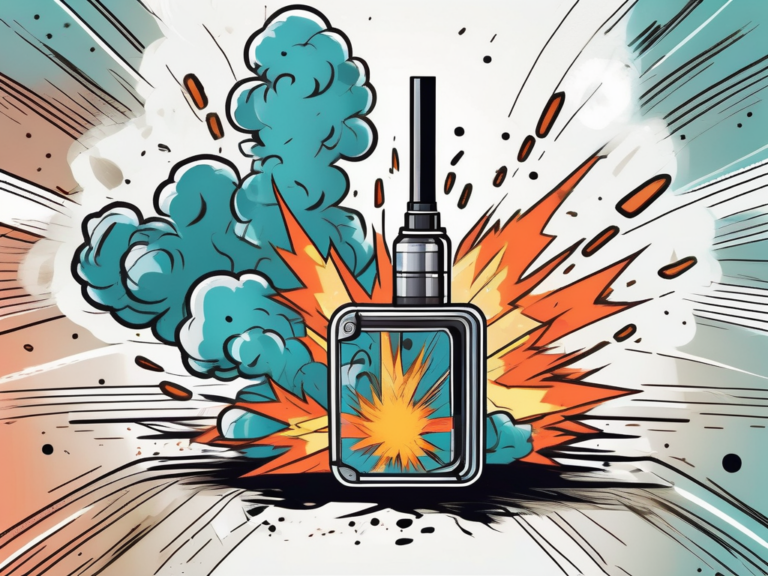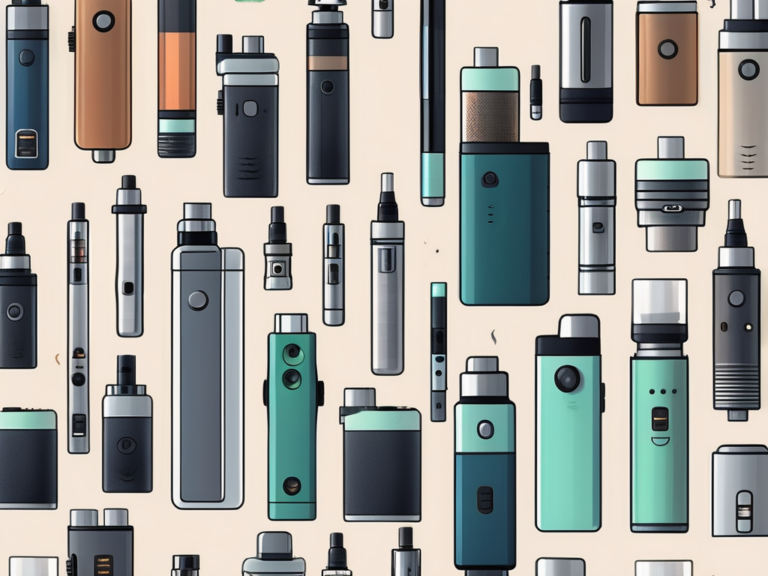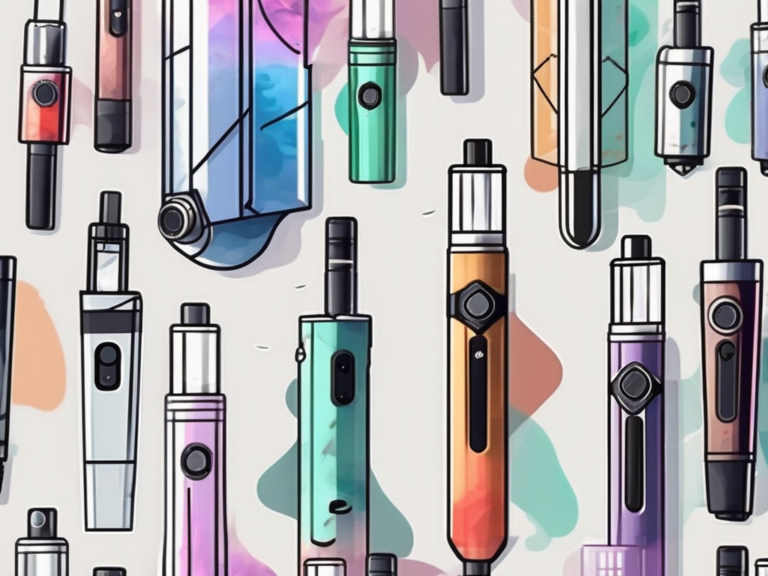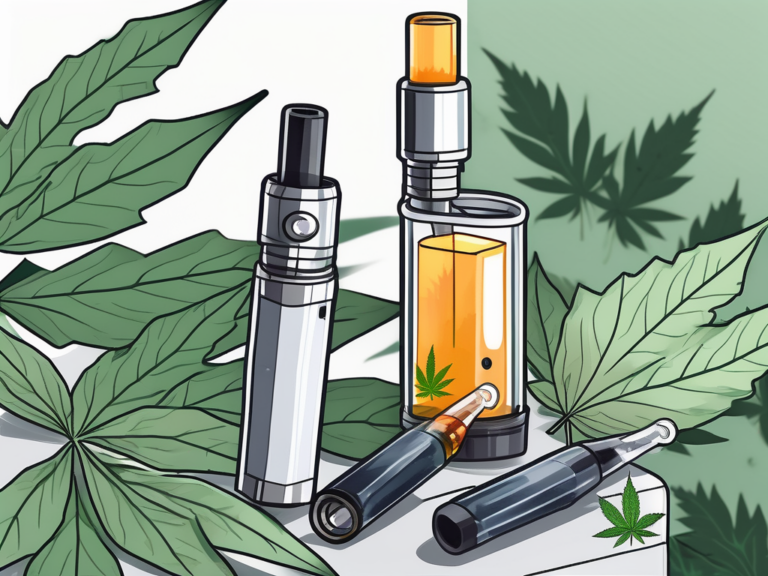what states can you buy vapes at 18
In recent years, there has been an increasing focus on the legal age for purchasing and using vaping products. With the rise in popularity of e-cigarettes and vape pens, policymakers have been grappling with the question of when it is appropriate for individuals to engage in these activities. This article aims to provide a comprehensive overview of the legal age for vaping, specifically looking at the states where you can buy vapes at 18.
Understanding the Legal Age for Vaping
Vaping, the act of inhaling and exhaling vapor produced by an electronic cigarette or similar device, has become a controversial topic. One of the main concerns is determining the appropriate age threshold for purchasing and using these products.
To comprehend the legal age for vaping, it is crucial to examine both federal and state laws governing this issue.
Federal Laws on Vaping Age
At the federal level, the legal age for purchasing vaping products is governed by the Tobacco Control Act, enacted in 2009. This legislation sets the minimum age for buying and using tobacco products, including e-cigarettes, at 18 years old. However, it is essential to note that individual states have the authority to establish higher age limits.
Moreover, the Food and Drug Administration (FDA) plays a significant role in regulating the manufacturing, distribution, and marketing of vaping products. The FDA has been actively involved in addressing the concerns surrounding youth access to e-cigarettes and has implemented various measures to combat underage vaping, such as enforcing age verification requirements for online sales.
State Laws on Vaping Age
While the federal minimum age for vaping is 18, various states across the nation have enacted their regulations and restrictions concerning the legal age for purchasing these products. Let’s take a closer look at the states where you can buy vapes at 18.
For example, in California, Hawaii, Maine, and several other states, the legal age for purchasing and using vaping products is 21. These states have chosen to align the minimum age for vaping with the legal age for purchasing traditional tobacco products. On the other hand, states like Alaska, Alabama, and Nebraska have maintained the federal minimum age of 18 for vaping.
States Where You Can Buy Vapes at 18
Although the majority of states require individuals to be 21 years old to legally purchase vaping products, there are a handful of states where the legal age remains at 18. These states include:
Overview of States with 18 as Legal Age
- Alaska
- Alabama
- Arkansas
- New Hampshire
- New Jersey
- Ohio
- Oklahoma
- Oregon
- South Carolina
- Texas
It is important to note that legislation is subject to change, so it is advisable to consult the most up-to-date information regarding vaping laws in your specific state.
Specific State Laws and Regulations
While the aforementioned states allow individuals to buy vapes at 18, it is essential to understand that there might still be certain limitations and regulations in place. Some states, for instance, require parental consent for individuals under 21 to purchase vaping products. Familiarizing oneself with the specific laws and regulations of their state is crucial to avoid any legal repercussions.
Furthermore, in states where the legal age for purchasing vaping products is 18, there may be additional restrictions on where these products can be consumed. For example, some states prohibit vaping in indoor public spaces, schools, or within a certain distance of public buildings. Understanding these nuances can help vapers navigate the legal landscape more effectively.
Impact of Federal Regulations
It is also worth noting that while certain states have set the legal age for purchasing vapes at 18, federal regulations may supersede these state laws. The U.S. Food and Drug Administration (FDA) has implemented regulations that apply nationwide, including restrictions on the sale of flavored vaping products in certain retail settings. This intersection of state and federal regulations adds another layer of complexity to the vaping industry.
The Controversy Surrounding Vaping Age
The legal age for vaping has sparked considerable debate among policymakers, healthcare professionals, and the general public. This controversy primarily stems from two key areas: health concerns and advocacy for a higher vaping age.
Health Concerns and Vaping
Opponents of allowing individuals to buy vapes at 18 argue that vaping poses significant health risks, particularly to young people. The potential long-term effects of inhaling vaporized nicotine and other chemicals remain a cause for concern, leading some to advocate for stricter regulations and higher age limits.
Studies have shown that vaping can have adverse effects on respiratory health, with some cases of severe lung injury linked to vaping products. The lack of long-term research on the health implications of vaping further complicates the issue, leaving many questioning the safety of these products, especially for young and developing bodies.
Advocacy for Higher Vaping Age
Various organizations and public health advocates argue that raising the legal age for vaping to 21 or higher is necessary to protect young people from the potential harms of e-cigarette use. They believe that delaying access to these products may prevent teens from initiating or continuing vaping habits.
Evidence suggests that the adolescent brain is particularly vulnerable to the addictive properties of nicotine, making early exposure to vaping a significant concern. By increasing the legal age for purchasing vaping products, advocates hope to reduce the likelihood of young individuals developing a lifelong addiction to nicotine and other harmful substances present in e-cigarettes.
Changes in Vaping Age Laws
The legal landscape surrounding vaping age is constantly evolving, with states periodically revising their laws. It is important to stay informed about these changes to ensure compliance and avoid potential penalties.
Understanding the reasons behind these changes is essential. The shift from 18 to 21 as the legal age for purchasing vaping products is often driven by concerns about the impact of vaping on young adults. Studies have shown that the developing brains of individuals under 21 are particularly vulnerable to the effects of nicotine and other substances present in vaping products. By raising the legal age, lawmakers aim to protect the health and well-being of young people.
Recent Changes in State Laws
Several states that previously allowed individuals to buy vapes at 18 have recently raised their legal age to 21. Keeping track of these changes is essential, as failure to comply with new regulations can have serious consequences.
Moreover, these changes reflect a broader shift in societal attitudes towards vaping. As more research is conducted on the long-term health effects of vaping, policymakers are under increasing pressure to regulate the industry more strictly. By aligning the legal vaping age with that of tobacco products, states are sending a clear message about the potential risks associated with vaping.
Predicted Future Changes in Legislation
Given the ongoing debates surrounding vaping and public health concerns, it is likely that more states will contemplate raising the legal age for purchasing vaping products. Staying up to date with potential legislation changes is crucial for individuals and businesses involved in the vaping industry.
Looking ahead, it is possible that additional restrictions, such as flavor bans or marketing regulations, may also be introduced to curb the rising rates of vaping among young people. As the industry continues to evolve, stakeholders must remain vigilant and adaptable to navigate the changing regulatory environment effectively.
Consequences of Underage Vaping
Understanding the potential consequences of underage vaping is vital in promoting responsible behavior and improving public health outcomes. Vaping among minors has become a growing concern in recent years, with studies showing a significant increase in underage e-cigarette use. This trend has raised alarms among health professionals, policymakers, and parents alike, highlighting the urgent need for effective prevention strategies.
One of the key factors contributing to the rise in underage vaping is the aggressive marketing tactics employed by e-cigarette companies, which often target young audiences through social media influencers and flavored products. These marketing strategies have been criticized for glamorizing vaping and making it more appealing to adolescents, ultimately leading to a surge in youth experimentation with e-cigarettes.
Legal Penalties for Underage Vaping
Individuals who vape underage may face legal repercussions, including fines, community service, and mandatory tobacco education programs. It is crucial to be aware of the specific penalties enforced in your state. In addition to the immediate legal consequences, underage vaping can also have long-term implications, such as tarnishing one’s record and limiting future opportunities. Being caught vaping at a young age can have lasting effects on academic, professional, and personal development.
Health Risks for Underage Vapers
While the long-term health effects of vaping are still being studied, evidence suggests that underage individuals who vape may be more likely to develop a nicotine addiction and engage in other risky behaviors. Additionally, exposure to harmful chemicals in vape aerosols may negatively impact lung health. The adolescent brain is particularly vulnerable to the effects of nicotine, which can disrupt cognitive development and increase the risk of mood disorders. Furthermore, the lack of regulation in the e-cigarette industry means that underage vapers may unknowingly expose themselves to dangerous substances that could have serious health consequences in the future.
The Changing Legal Age for Vaping
The legal age for vaping is a dynamic issue, influenced by ongoing scientific research, public health concerns, and evolving societal attitudes. It is important for individuals, businesses, and policymakers to stay informed and adapt to these changing regulations.
Remember, if you are considering purchasing or using vaping products, it is essential to familiarize yourself with the specific laws and regulations in your state. Consult reputable sources and consider seeking guidance from local authorities or legal professionals to ensure compliance and responsible choices.






